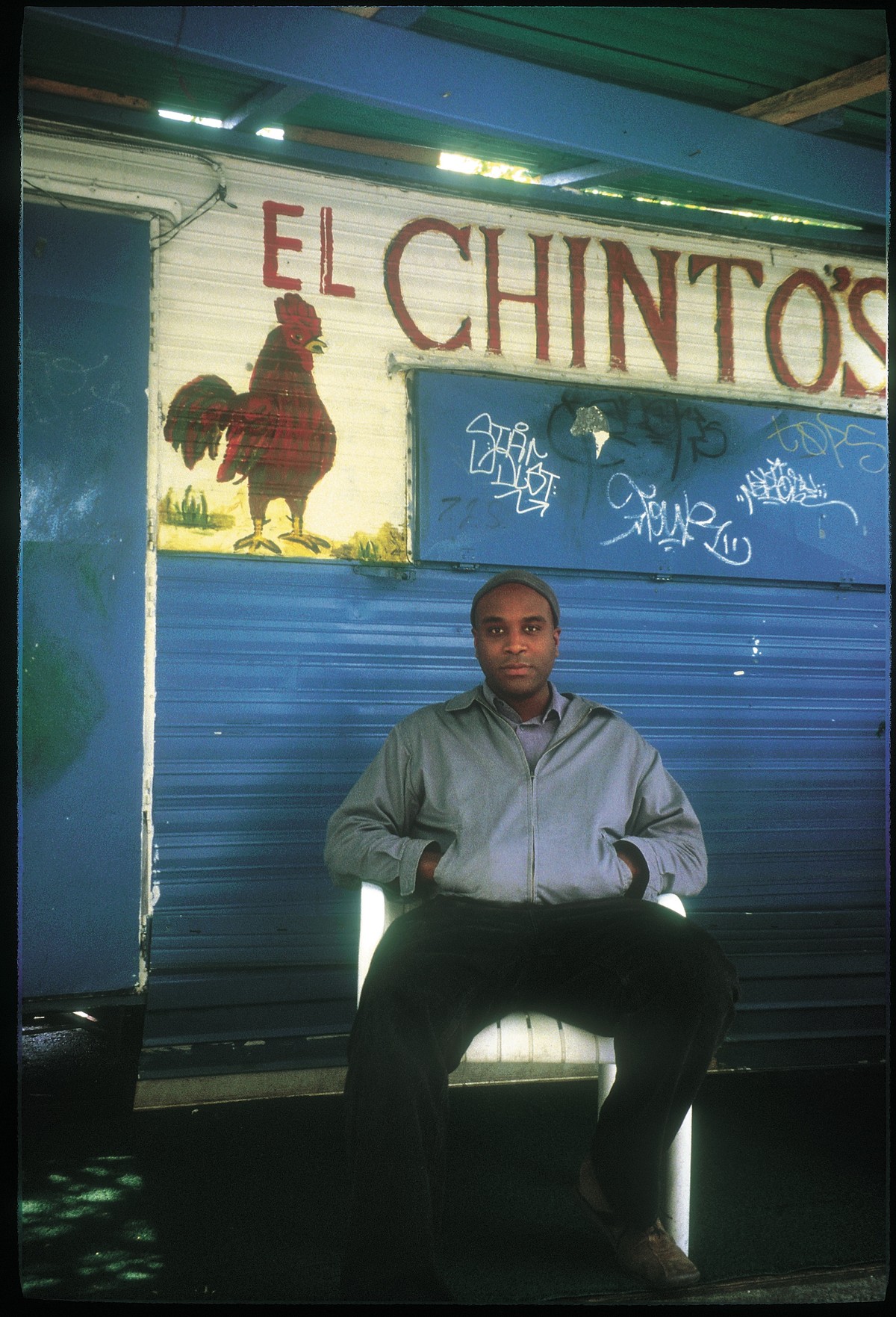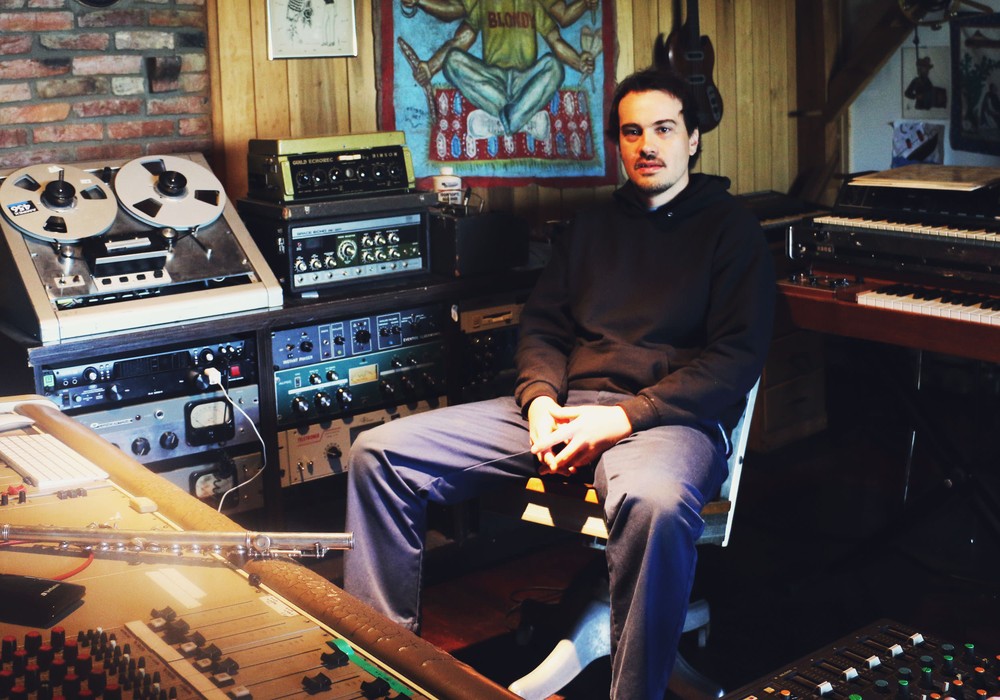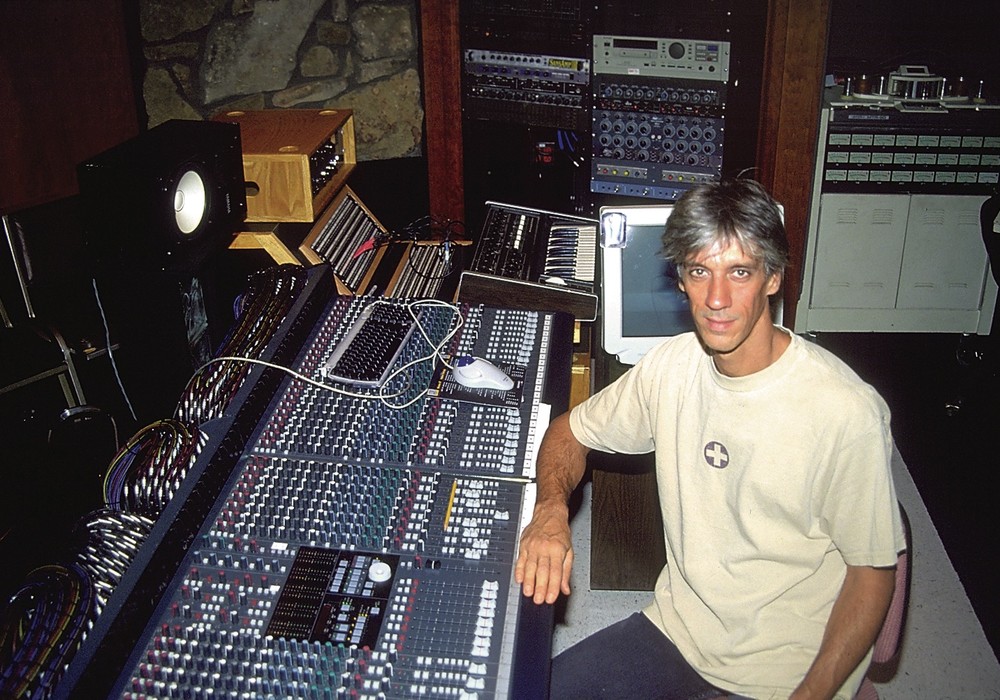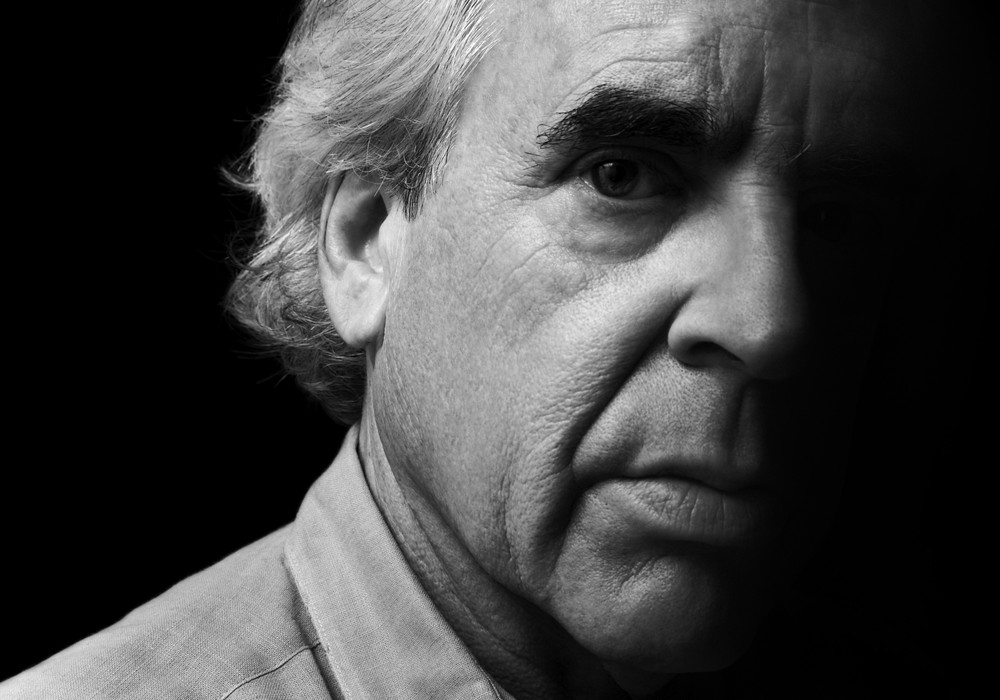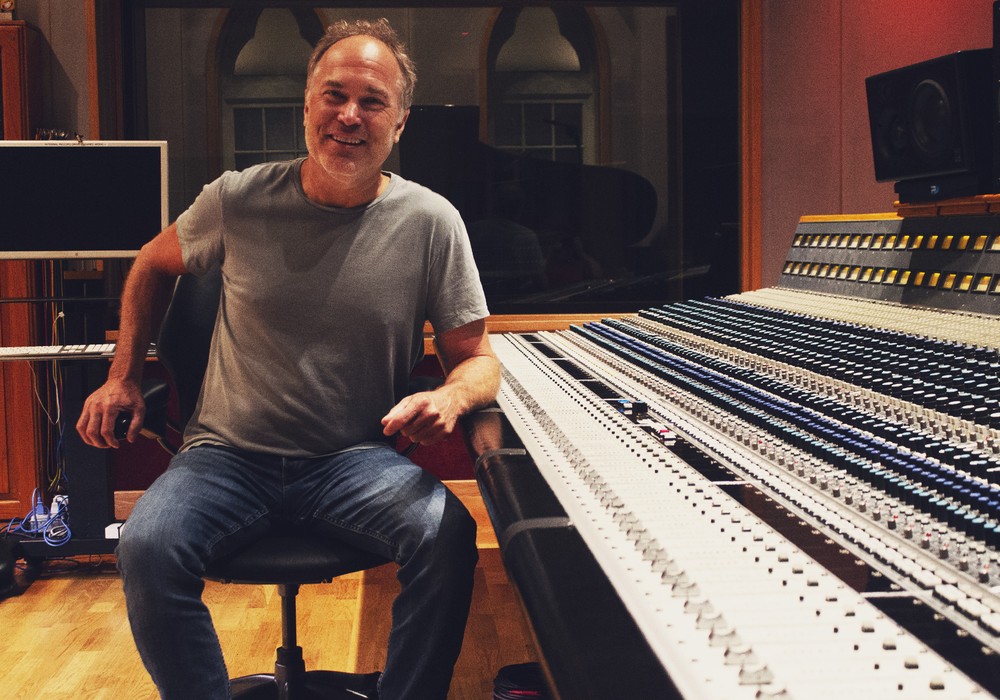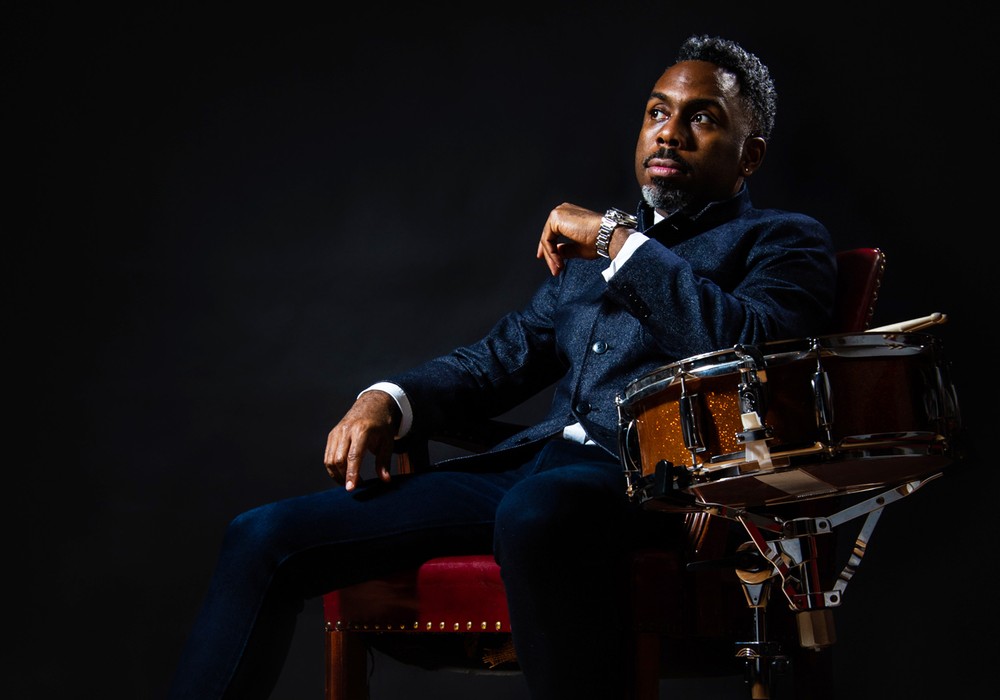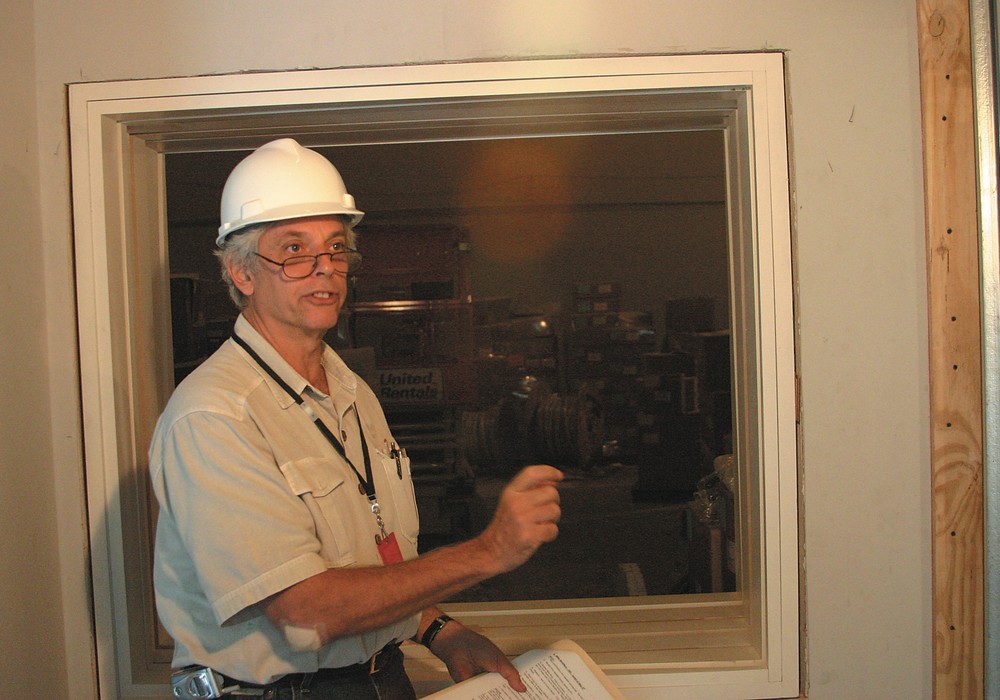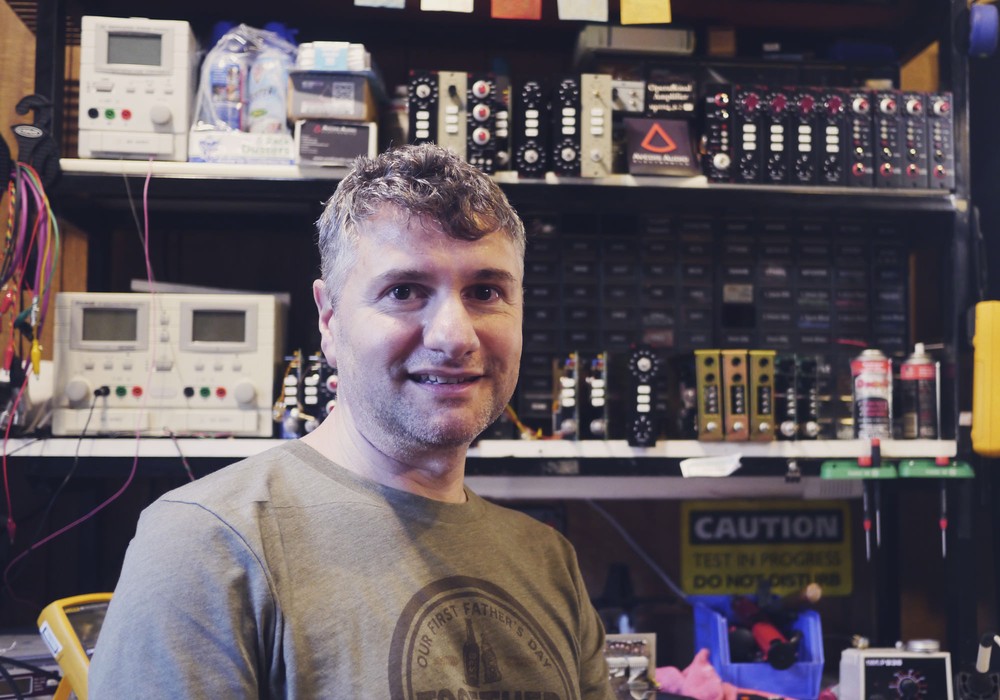Chad Clark serves as one of the main engineers working at Inner Ear Studios in Arlington, VA, recording many of DC's finest acts, among them Dismemberment Plan, Burning Airlines, Calibos, Semaphore, National Stranger, Kathy Kashel, Maestro Echoplex, Blinder, and Bald Rapunzel. I was first introduced to Chad's work via his own first band, Smart Went Crazy, which he fronted. Upon hearing their second album, Con Art, I was immediately impressed by the combination of his imaginative songwriting, crisp engineering and a very clever and appropriate sense of production. I later investigated and subsequently came to appreciate Chad's production skills on other albums, such as Dismemberment Plan's Emergency & I and his own post-Smart Went Crazy project, Beauty Pill. Recently, he's opened an affordable mastering studio in the DC area, Silver Sonya Mastering Services, with which he mastered the latest Fugazi album, The Argument.
Didn't you study literature in college?
Yeah. I never went to school for recording. My whole thing is I'm obsessed with records. I've always had this really huge record collection, and I've always looked for information about how such and such a record was recorded, and that's always been the way that I've taught myself.
Did you become formally involved with studio work when you were in Smart Went Crazy?
Yeah. By the time I started Smart Went Crazy, I was really, really into records. I loved playing live and everything, but almost the point of having a band for me was making records, and getting to work in the studio. But I was definitely the member of Smart Went Crazy that was most interested in records and learning how things were done in the studio. When we got Dischord to sign us, I took it as an opportunity to become a student of Don Zientara, who's the owner of Inner Ear. He's very inspiring to work with, a very intuitive engineer, a very technical engineer, but he really just makes stuff up as he goes along, which is something that really left an impression on me. I'd basically always ask Don, "What is that microphone!? Why are you putting it there? What does that do? How does that work?" I was really kind of annoying, I think, when we were making records. But it helped me get a grip on [all] the possibilities. In Smart Went Crazy, we were definitely empowered — all that knowledge helped us to make the last record we made [Con Art], which I was really proud of.
With Con Art, you mixed and produced. Did you engineer as well?
That record was done in an unusual way, at least at the time. Don Zientara recorded the bulk of the rhythm tracks (bass, drums, and guitar) on the analog 2" at Inner Ear. Then, in order to record the overdubs (vocals, cello, guitar, keyboards, sampler, etc.) at our practice space, we purchased an ADAT XT and synched it up with the 24-track, using an Alesis BRC. We recorded a synchronized rough mix of the basic tracks onto tracks 1 and 2 of the ADAT and then took it home into our practice room. We did a lot of the recording of the overdubs at home, and then brought it back into the studio and mixed it. It was like we were off the clock, and we could experiment and try things without really worrying about paying so much per hour, but we could also take advantage of the fact that it was recorded professionally by a real engineer in the studio. I'm surprised more people don't do this, especially 'cause it's so much easier now.
I want to talk for a while about your role as a producer, in the studio. Do you do pre-production with artists at all?
It depends on the situation. You know, I work with a lot of bands that don't have any money, so you don't really have the budget to be getting into that. So I really enjoy a lot of times operating purely as an engineer, you know, kind of the Steve Albini mindset. I really enjoy also just going on instinct and improvising. Sometimes the band just comes into Inner Ear, and I record them, and we make it up as we go along. But sometimes, as in the case of Dismemberment Plan, there's usually a little bit more intense and long-term involvement. It's more of a musical collaboration. I really believe in acting on instinct and I like to not plan things too much. I'm not always the most organized guy in the world — I like to just keep doing what makes sense at any given time, whether that's the technical stuff like microphones or preamps, or whether the drummer is overplaying in the second verse. All records are different, all bands are different, all situations are different.
What do you try to impart on a session?
If there's one thing that I'm always pushing for, it's for people to aspire to do something great and to try to imagine that it's a perfect...


